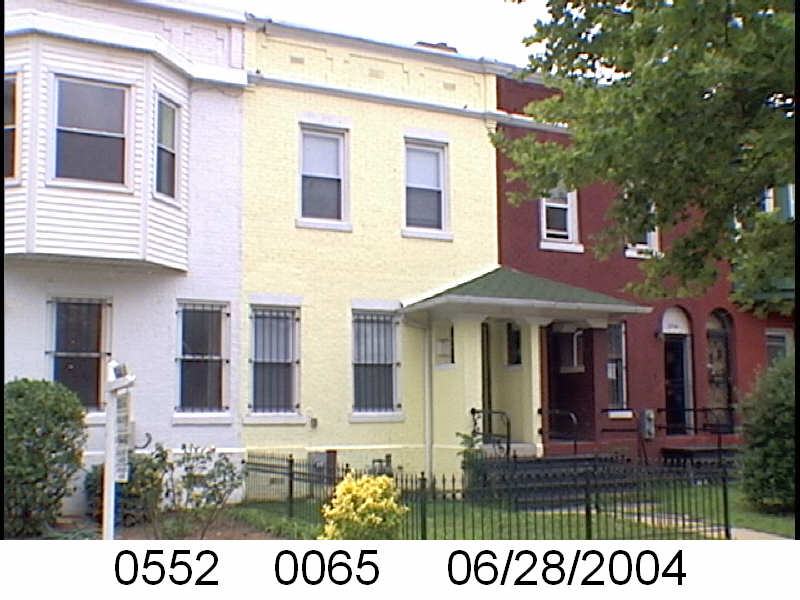The Washington Sanitary Improvement Company (WSIC) was a late 19th century charitable capitalism experiment that ended in the 1950s. This blog started looking at the homes that were supposed to be sold to African American home buyers, after decades of mainly renting to white tenants.

Looking at WSIC properties they tend to have a pattern where the properties were sold to a three business partners, Nathaniel J. Taube, Nathan Levin and James B. Evans as the Colonial Investment Co. for $3 million dollars. Those partners sold to African American buyers. There was usually a foreclosure. Then the property wound up in the hands of George Basiliko and or the DC Redevelopment Land Agency (RLA). Then there was the odd lucky ones who managed to avoid that fate.
- December 1950 (recorded 1/18/51) Evans, Levin and Taube sold one-half of 222 Q St NW to Clarence Gayles.
- December 1950 (recorded 1/18/1951) Mr. Gayles borrowed $3,125 from Colonial Investment Co. favorite trustees Abraham H. Levin and Robert G. Weightman.
- February 1951 Evans, Levin and Taube sold the other one-half of 222 Q St NW to Mildred and Willie E. Sessoms.
- February 1951 the Sessoms borrowed $3,275 from trustees Abraham H. Levin and Robert G. Weightman.
- January 1951 (recorded 5/1/1951) Gayles sold his half to Sylvia and Clayton Watson.
- Unfortunately, June 1958 Gayles (the Watsons) lost their half to foreclosure and via auction, it was returned to Evans, Taube and new partner Harry A. Badt.
- June 1958 (recorded 11/14/1958) The Badts (Harry & wife) transferred their interest in this and other properties to Nathan Levin’s family (wife Rose, children Lawrence, Myron Levin and Ruth Wagman).
- June 1959, as part of a larger package, Evans, Taube, Badt (and their wives) and Levin’s survivors sell their interest in 222 Q St NW to Sophia and George Basiliko.
- March 1962 the Sessoms paid off their mortgage.
- February and March 1978 Delores Simpkins purchased both halves of 222 Q St NW from widower Willie Sessoms and George Basiliko.
This property, despite part of it falling under George Basiliko’s ownership, did not transfer over to the District of Columbia Redevelopment Land Agency (RLA).
